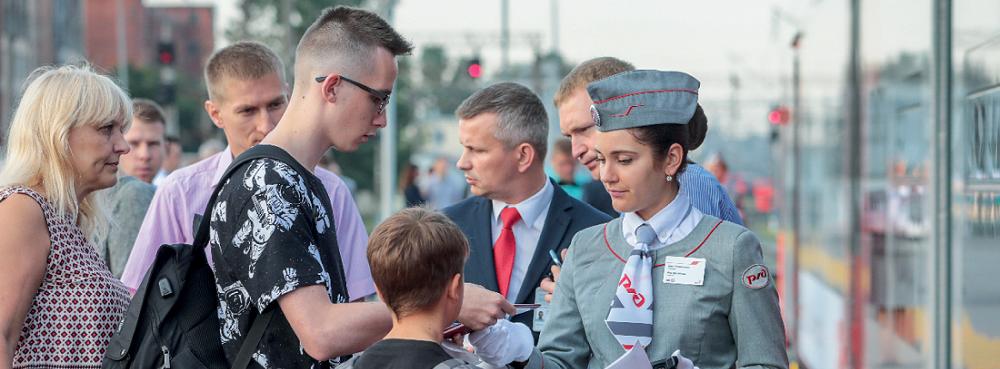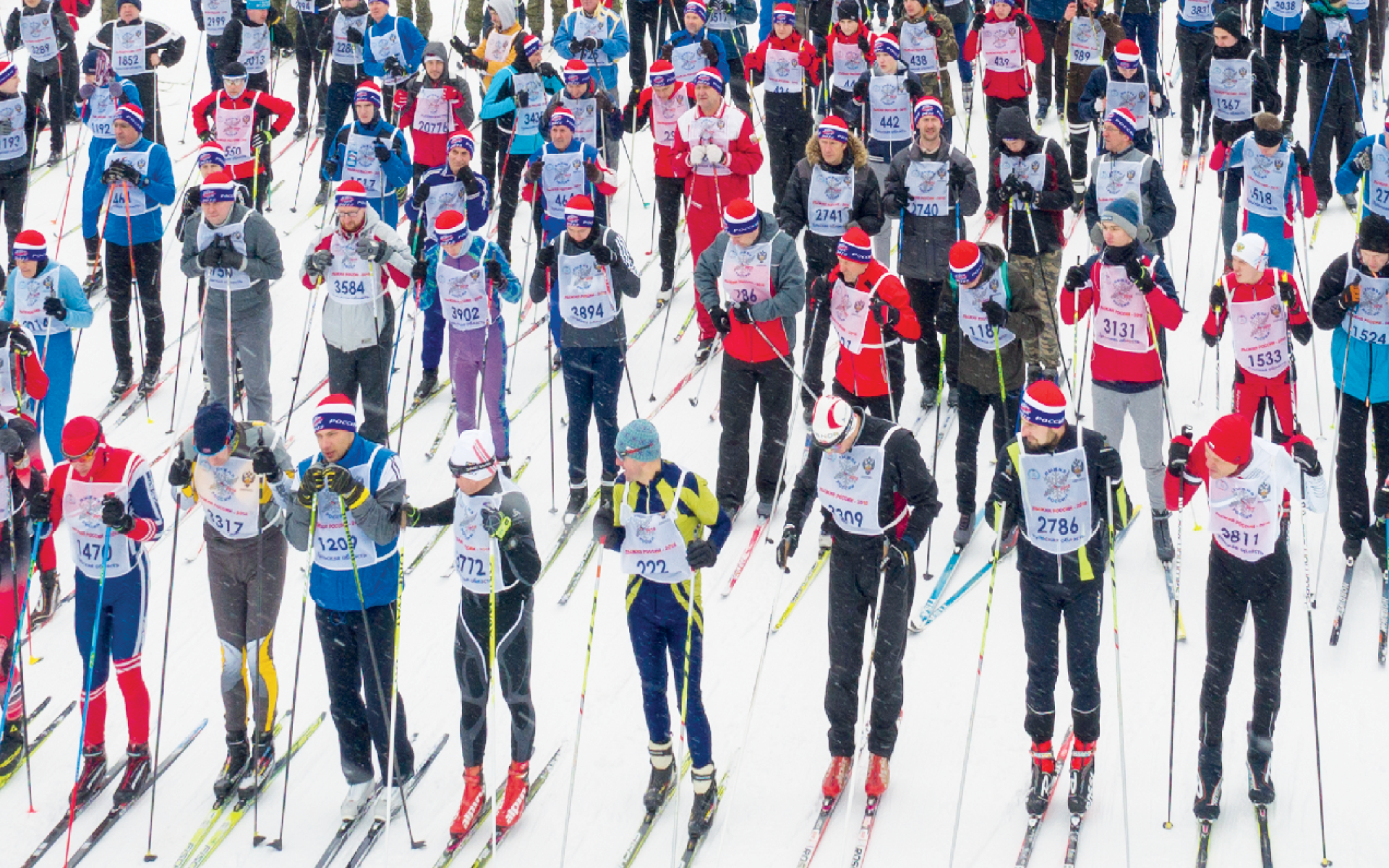HR management

The Company’s HR policy seeks primarily to ensure a stable working environment through balanced and effective personnel management and social initiatives. In accordance with Russian Railways’ Code of Business Ethics, heads of the Company’s branches and business units ensure equal rights and opportunities for all persons when they apply for a job or work their way up the career ladder, regardless of their gender, age, race, nationality, language, origin, financial and employment status, place of residence, religious and political beliefs.
There are two external factors that will shape the Company’s HR management framework in the long run. The first one is the emergence of next generation employees with completely different job expectations. The other one is automation, which helps boost the volume of data processed, making all processes faster and simpler. At the same time, the market sees new types of jobs that increasingly require employees to develop digital competencies.
As part of its Long-Term Development Programme until 2025, Russian Railways will be building its HR management processes around:
- introducing advanced technologies (cutting-edge recruitment and training methods, individually selected benefits, creation and development of solutions for fast and convenient employee-employer interactions, HR automation using big data, among other things, and transition to an HR business partner model);
- enhancing the existing crucial HR practices (base package of benefits, social guarantees and compensations, annual salary indexation, development of continuous training programmes, independent assessment of qualifications reliant on professional standards).
Headcount and staff composition
As at 31 December 2019, Russian Railways had 743,100 employees, down 1.2% y-o-y.
The reporting year saw a rise in staff education level, with the share of employees with higher education increasing by 0.7 pp to 32.8% of the total headcount by the beginning of the year. The share of employees with secondary vocational education amounted to 28% (up 0.2 pp y-o-y).
Workforce analysis
Labour productivity
Russian Railways makes systemic efforts to increase labour productivity by reducing labour inputs on the back of technology advancements and improved process flows. In 2019, labour productivity in transportation increased by 3.3% y-o-y.
Employee remuneration and incentivisation
By offering a competitive salary, the Company promotes work in the railway industry and prevents the outflow of skilled professionals. In 2019, we adjusted salaries by 6% (including 2.9% in March, 2% in July and 1% in October) as per the Collective Bargaining Agreement.
The average monthly salary across all Russian Railways operations increased by 6.5% y-o-y to RUB 58,504, while real company-wide salaries grew by 1.9%. The Company’s wages are 23% above the country’s average and the pay level across nearly all Russian regions (except for Moscow, the Yamal-Nenets Autonomous Area and the Sakhalin Region).
The Company takes an ongoing, focused effort to improve its financial incentive system.
In February 2019, the employees received a lump-sum remuneration for maintaining high levels of labour productivity growth in 2018.
The Company keeps incentivising its employees to enhance efficiency, with RUB 361.2 m spent on rewarding 18,000 people for the associated achievements in 2019.
| Indicator | 2015 | 2016 | 2017 | 2018 | 2019 |
|---|---|---|---|---|---|
| Average monthly salary across all operations, RUB | 44,500 | 46,852 | 50,404 | 54,934 | 58,504 |
| Y-o-y growth, % | 108.2 | 105.3 | 107.7 | 109.0 | 106.5 |
Employee training and development
In 2019, Russian Railways continued cooperation with industry-based educational institutions to train specialists with higher education and secondary vocational education. As at the year-end, more than 31,000 students were taking courses at railway universities sponsored by Russian Railways. 88 new scholarships were established in 2019 to be granted to the most talented university students.
On top of that, over 170,000 Russian Railways managers and office workers upgraded their professional skills at railway universities and other educational institutions.
The Russian Railways Corporate University was established in 2010 as part of the industry education system to train managers at the strategic and tactical levels of the Russian Railways Group and help them develop corporate competencies. The Corporate University serves as a centre of excellence in personnel assessment, methodology of new educational programmes, implementation of distance learning technologies and talent pool development programmes.
In 2019, the University implemented 153 upskilling and reskilling programmes in general management and modern leadership, with over 80,000 graduates.
In the same year, the University launched a number of new projects, including a new series of programmes supporting digital transformation under which trainees get introduced to design thinking and learn to create digital services for passengers, shippers and the Group employees.
The Corporate University of Russian Railways was successfully certified with GlobalCCU CU Certification Compliance level. This landmark event confirmed that training and development programmes of the Russian Railways Group are in line with the internationally acknowledged principles and standards of corporate education.
The Company’s professional training framework relies on 15 education centres made up of 67 regional branches scattered between Kaliningrad and Sakhalin.
The centres’ educational programmes and schedules comply with professional standards. In 2019, the Company developed ten new professional standards for railway industry occupations and updated 16 existing standards.
2019 results:
- over 51,500 workers were trained;
- over 175,800 employees upgraded their skills at training centres, technical schools and colleges.
Russian Railways’ structure includes 137 non-governmental and private healthcare facilities (including 83 hospitals with a total of 15,900 beds for 24/7 care and 54 outpatient clinics) for its employees.
In 2019, more than 1.8 m mandatory pre-employment and regular medical examinations and over 29.4 m pre-trip medical check-ups were conducted. This helped maintain zero level of accidents caused by employees’ poor health. The morbidity with temporary disability rate for 2019 was 55.8 cases (699.5 days) out of 100.
The reporting year saw the development and launch of a unique programme for preventive medical examination of the Company’s employees that encompasses different methods of highly informative medical screenings depending on sex and age of an individual and various risk markers.
The Company takes consistent steps to promote healthy lifestyle. In 2019, it started developing the Russian Railways Healthy Lifestyle Programme for 2020–2025.
As part of the Collective Bargaining Agreement, the Company partners with the Russian Trade Union of Railway Workers and Transport Builders (Rosprofzhel) and Lokomotiv Russian Fitness and Sports Society to stage and run events aimed at improving health and promoting sports and fitness among its employees and their families. The reporting year saw some 165,700 people take part in the Company’s sports events.
Every year, Russian Railways team participates in championships held by the International Railway Sports Association (USIC) in various sports.

The 29th International Winter Universiade, an international sporting event for students, took place in Krasnoyarsk on 2–12 March 2019. Over 2,000 people from 58 countries took part in the event. The athletes were competing for 76 medal sets in 11 sports: biathlon, alpine skiing, curling, cross-country skiing, snowboard, ski orienteering, figure skating, freestyle skiing, ice hockey, bandy, and short track speed skating. The Universiade flame was carried along the streets of Krasnoyarsk by local citizens known for their achievements in sports, arts, culture, education or science.